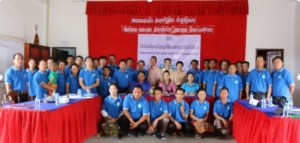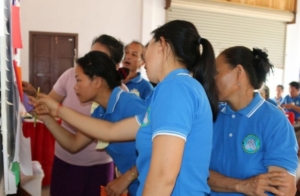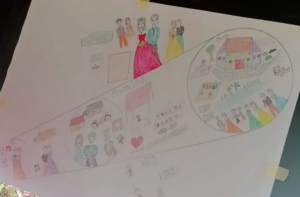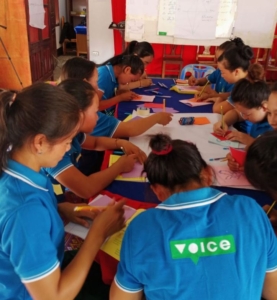Project
Gender Equality for Women Employment
-
Amount Funded
21,994 EUROProject Duration
01 Jan 2020 - 31 Dec 2020 -
-
Lead organisation
Association for Mutual Assistant (AMA)
-
Association for Mutual Assistant (AMA) assists Hmong people who migrate from rural high heel mountain to stay at the accessible villages to access health care services, education, communication as well as find an occupation. Many of the Hmong families who move from high heel mountain face a lot of problems in starting a new life; they have limited agricultural land and live far from each other. With authorisation and support of the government, the association has a project that assists Hmong ethnic minority access justice, preserves their traditions, and helps build the capacity of village authorities to manage land and forest in the target community. Based on the Decree of Non-Profit Association (NPA), AMA has registered as NPA and has 1,378 member families in a population of 10,887 people where 5,435 people are women; 95% are Hmong, 3% Khmu and 2% Lao loum. AMA currently works in 30 villages in four districts; name Luang Prabang City, Pakou, Phonexay, and Xieng Ngeurn.
-
Organisation
Association for Mutual Assistant (AMA) assists Hmong people who migrate from rural high heel mountain to stay at the accessible villages to access health care services, education, communication as well as find an occupation. Many of the Hmong families who move from high heel mountain face a lot of problems in starting a new life; they have limited agricultural land and live far from each other. With authorisation and support of the government, the association has a project that assists Hmong ethnic minority access justice, preserves their traditions, and helps build the capacity of village authorities to manage land and forest in the target community. Based on the Decree of Non-Profit Association (NPA), AMA has registered as NPA and has 1,378 member families in a population of 10,887 people where 5,435 people are women; 95% are Hmong, 3% Khmu and 2% Lao loum. AMA currently works in 30 villages in four districts; name Luang Prabang City, Pakou, Phonexay, and Xieng Ngeurn.
-
Project
Gender equality is a sensitive issue for the Hmong ethnic minority group at the household level. Hmong women constantly face domestic violence, have no rights to participate in family planning, managing family assets or planning for their children’s education. Based on traditional practices a Hmong man/husband takes the lead in managing the family. The Laos Social Indicator Survey (LSIS) 2017 report found that 39.2 percent of Hmong women face domestic violence and 29.1 percent said that it is normal for them to be beaten by their husbands.The same report highlights that the Hmong man/husband does not see the importance of antenatal care and found out that only 61.3 percent of Hmong women have antenatal care when they are pregnant. Also, the family does not see the importance of supporting the Hmong girlchild education, as they believe that a girl is the property of their family-in-law and thus they will not gain from investing in the girl.The project Gender Equality for Women Employment uses capacity strengthening for gender equality practice at households through the Gender Action Learning System (GALs) in training different families. The Association of Mutual Assistant (AMA) has a strong vision to integrate gender in all programmes and activities.The organisation sets up a strong trainer of trainers (TOT) team to promote gender equality of the Hmong minority group, and requests technical support from Women Participating in Development Association (MHP) and Gender Development Association (GDA) as well as the Learning Development Association. The project builds the capacity of the AMA TOT team who in turn train the village authorities, the families and support the village women to monitor and promote gender equality in their families. AMA expands this knowledge to other AMA members and programmers.
-
-
Gender equality is a sensitive issue for the Hmong ethnic minority group at the household level. Hmong women constantly face domestic violence, have no rights to participate in family planning, managing family assets or planning for their children’s education. Based on traditional practices a Hmong man/husband takes the lead in managing the family. The Laos Social Indicator Survey (LSIS) 2017 report found that 39.2 percent of Hmong women face domestic violence and 29.1 percent said that it is normal for them to be beaten by their husbands.The same report highlights that the Hmong man/husband does not see the importance of antenatal care and found out that only 61.3 percent of Hmong women have antenatal care when they are pregnant. Also, the family does not see the importance of supporting the Hmong girlchild education, as they believe that a girl is the property of their family-in-law and thus they will not gain from investing in the girl.The project Gender Equality for Women Employment uses capacity strengthening for gender equality practice at households through the Gender Action Learning System (GALs) in training different families. The Association of Mutual Assistant (AMA) has a strong vision to integrate gender in all programmes and activities.The organisation sets up a strong trainer of trainers (TOT) team to promote gender equality of the Hmong minority group, and requests technical support from Women Participating in Development Association (MHP) and Gender Development Association (GDA) as well as the Learning Development Association. The project builds the capacity of the AMA TOT team who in turn train the village authorities, the families and support the village women to monitor and promote gender equality in their families. AMA expands this knowledge to other AMA members and programmers.
-
45 families changed their mindset and behaviour regarding domestic violence and are now acting in accordance with their roles. The families learned how to define problems and distinguish between positive and negative actions and their consequences. They also learned how to manage household expenses, cutting back on unnecessary spending. They also learned how to build and maintain relationships in a powerful, mindful, and cost-effective manner. They also learned how to plan for family growth. They also learned about domestic violence laws, human rights violations, prostitution, and championing women.
Many parties contributed to the project’s success, including Voice providing adequate and necessary support for the project with knowledgeable and helpful staff, the staff of AMA, MHP and GDA, provincial government employees, women’s unions, and village authorities. Rightsholders now have a vision and believe that changes are possible.
Photos










